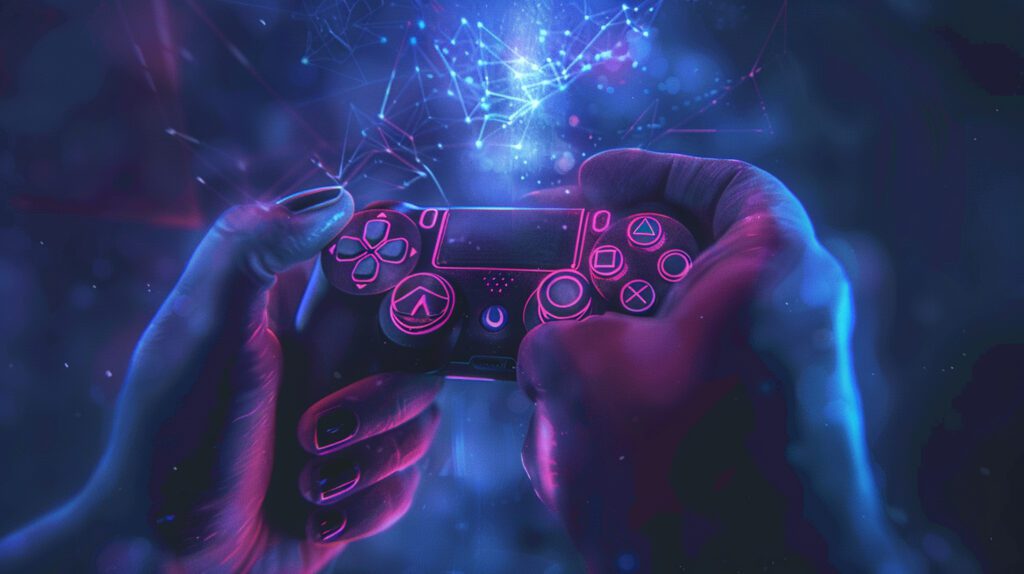In the rapidly evolving landscape of the gaming industry, the importance of selecting the right game design company cannot be overstated. As the market continues to expand, with global revenues projected to reach $200 billion by 2023 (Newzoo, 2023), the need for innovative and engaging game experiences has never been greater. This article delves into the intricacies of finding the right game design partner, exploring key factors to consider, real-world examples, and the implications of these partnerships on your project’s success.

Understanding Your Vision and Goals
Before embarking on the search for a game design company, it is crucial to have a clear understanding of your vision and goals. This involves defining the genre, target audience, and core mechanics of your game. For instance, if you are developing a mobile puzzle game aimed at casual gamers, your requirements will differ significantly from those of a complex AAA title targeting hardcore gamers.
Defining Your Game’s Genre
Different genres require distinct design philosophies and technical expertise. For example, a company like Supercell, known for its mobile games such as Clash of Clans, excels in creating engaging multiplayer experiences. In contrast, FromSoftware, the studio behind the Dark Souls series, specializes in intricate level design and challenging gameplay mechanics. Understanding the genre will help you narrow down potential partners who have a proven track record in that specific area.
Identifying Your Target Audience
Knowing your target audience is essential for tailoring the game design process. According to a report by Statista (2023), 45% of gamers are aged between 18 and 34, indicating a significant market segment that values immersive storytelling and high-quality graphics. A game design company that understands the preferences of your target demographic will be better equipped to create a product that resonates with players.

Evaluating Technical Expertise
Once you have a clear vision, the next step is to evaluate the technical expertise of potential game design companies. This includes assessing their proficiency in various game engines, programming languages, and design tools. For instance, companies like Epic Games and Unity Technologies have developed powerful game engines that are widely used in the industry. A partner with experience in these platforms can significantly streamline the development process.
Game Engines and Development Tools
Choosing the right game engine is critical for the success of your project. According to a survey by Game Developer (2023), Unity is the most popular game engine, used by 48% of developers, followed by Unreal Engine at 22%. If your project requires high-fidelity graphics and complex physics, partnering with a company experienced in Unreal Engine may be advantageous. Conversely, if you are focusing on mobile platforms, a company well-versed in Unity may be more suitable.
Programming Languages and Frameworks
In addition to game engines, familiarity with programming languages such as C#, C++, and JavaScript is essential. A study by Gamasutra (2023) revealed that 60% of game developers prefer C# for Unity projects, while C++ remains the language of choice for Unreal Engine. Ensuring that your partner has a strong grasp of these languages will facilitate smoother communication and collaboration throughout the development process.
Assessing Portfolio and Case Studies
When evaluating potential game design companies, reviewing their portfolio and case studies is vital. This provides insight into their design philosophy, technical capabilities, and the quality of their previous work. Look for companies that have successfully completed projects similar to yours, as this indicates their ability to deliver on your vision.
Real-World Examples
For instance, Riot Games, known for League of Legends, has a robust portfolio showcasing their expertise in multiplayer online battle arena (MOBA) games. Their ability to create engaging gameplay mechanics and a vibrant community is a testament to their design prowess. On the other hand, Indie studio Team Cherry gained acclaim for Hollow Knight, demonstrating that smaller companies can also deliver high-quality experiences. Their focus on atmospheric design and intricate storytelling has garnered a dedicated fanbase.
Communication and Collaboration
Effective communication is paramount in any partnership. The game design process involves multiple stages, including concept development, prototyping, and testing. A company that prioritizes open communication and collaboration will be more likely to understand your vision and adapt to any changes that arise during development.
Agile Development Methodologies
Many successful game design companies employ agile development methodologies, which emphasize iterative progress and flexibility. According to a report by the International Game Developers Association (IGDA, 2023), 70% of game developers use agile practices to enhance collaboration and responsiveness. Partnering with a company that embraces these methodologies can lead to a more efficient development process and a final product that aligns closely with your vision.
Budget Considerations
Budget is often a significant factor in selecting a game design partner. The cost of game development can vary widely based on the complexity of the project, the size of the team, and the duration of development. According to a survey by Game Industry Biz (2023), the average cost of developing a mobile game ranges from $50,000 to $250,000, while AAA titles can exceed $100 million.
Finding the Right Balance
It is essential to find a partner that can deliver quality within your budget constraints. This may involve negotiating terms or exploring alternative funding options, such as crowdfunding or seeking investors. A transparent discussion about budget expectations will help establish a solid foundation for your partnership.
Conclusion
In conclusion, finding the right game design company is a multifaceted process that requires careful consideration of your vision, technical expertise, portfolio, communication practices, and budget. By taking the time to evaluate potential partners thoroughly, you can ensure that your project is in capable hands, ultimately leading to a successful and engaging game experience. Remember, the right partner can not only bring your vision to life but also enhance it through their expertise and creativity.
Key Takeaways
1. Clearly define your vision and goals before searching for a game design partner.
2. Evaluate technical expertise, including familiarity with game engines and programming languages.
3. Review portfolios and case studies to assess the quality of previous work.
4. Prioritize effective communication and collaboration throughout the development process.
5. Consider budget constraints and negotiate terms to find a suitable partner.
FAQ
What should I look for in a game design company?
Look for technical expertise, a strong portfolio, effective communication practices, and experience in your game’s genre.
How much does it cost to develop a game?
The cost can vary widely; mobile games typically range from $50,000 to $250,000, while AAA titles can exceed $100 million.
What is the importance of communication in game development?
Effective communication ensures that all parties are aligned on the vision and can adapt to changes throughout the development process.
How can I ensure my game design partner understands my vision?
Provide detailed documentation of your vision, engage in regular discussions, and encourage feedback throughout the development process.

